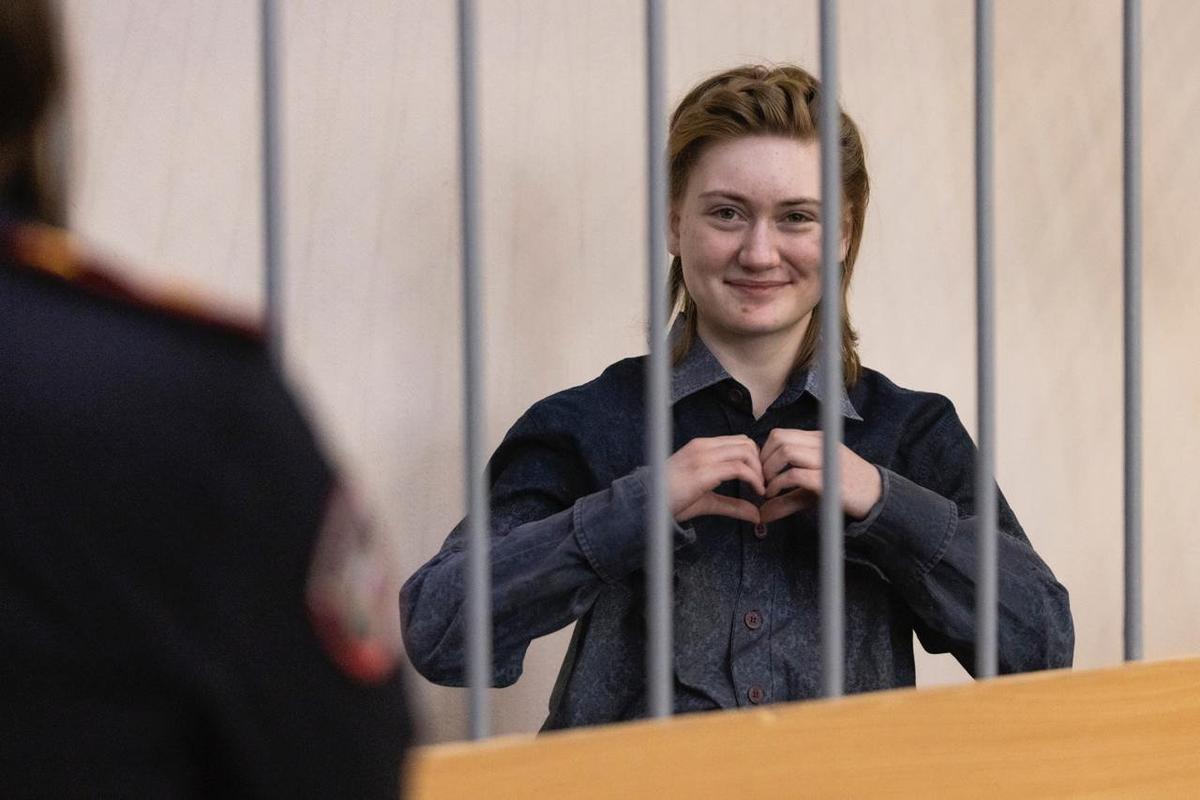
The Petrogradsky District Court of St. Petersburg in Russia has sentenced 19-year-old activist Daria Kozyreva to two years and eight months in prison for “discrediting the armed forces” by publicly posting a verse of 19th-century Ukrainian poetry in protest of Russia’s war in Ukraine, according to local media sources.
Kozyreva began her anti-war activism in 2022, the year that Russia’s full-scale invasion of Ukraine began. That December, she was detained for spray-painting the words “Murderers, you bombed it, Judases” on a sculpture representing the historic ties between St. Petersburg and the Ukrainian city of Mariupol—which Russia had heavily bombarded that year. In early 2024, she was fined and expelled from university for criticizing the “imperialist nature of the war” in a social media post.
On the second anniversary of the start of invasion last February, Kozyreva taped a piece of paper bearing a quote from Testament, by Ukrainian national poet Taras Shevchenko, onto his statue in a St. Petersburg park. The excerpt read: “Oh bury me, then rise ye up / And break your heavy chains / And water with the tyrants’ blood / The freedom you have gained.”
According to Amnesty International, Kozyreva spent nearly a year in pre-trial detention before her sentencing and was subjected to a forced psychiatric evaluation. After her release, she remained under strict conditions, including a curfew and limited access to her phone, the internet and media.
Amnesty International’s Russia director Natalia Zviagina condemned the court’s decision, calling it “another chilling reminder of how far the Russian authorities will go to silence peaceful opposition to their war in Ukraine.” She added: “Daria Kozyreva is being punished for quoting a classic of 19th-century Ukrainian poetry, for speaking out against an unjust war, and for refusing to stay silent. We demand the immediate and unconditional release of Daria Kozyreva and everyone imprisoned under ‘war censorship’ laws.”
From JURIST, April 19. Used with permission.
Se our last reports on resistance and repression in Russia, and the legacy of Taras Shevchenko.
Photo: Mediazona via Novaya Gazeta




